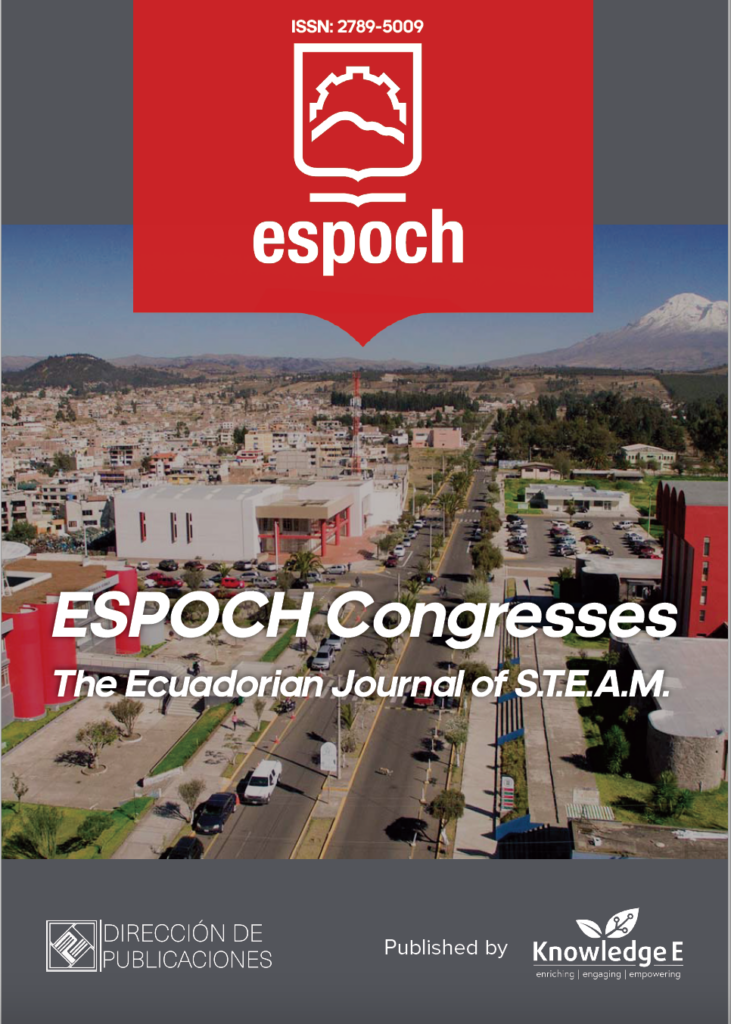
ESPOCH Congresses: The Ecuadorian Journal of S.T.E.A.M.
ISSN: 2789-5009
Leading Ecuadorian research in science, technology, engineering, arts, and mathematics.
The Effects of Online Task-Based Learning on the Acquisition of Second Conditional
Published date:Aug 09 2022
Journal Title: ESPOCH Congresses: The Ecuadorian Journal of S.T.E.A.M.
Issue title: Volume 2, Issue 3
Pages:920 - 929
Authors:
Abstract:
The present study shows the effects of online Task-Based Learning on the acquisition of grammar topics in EFL context. It discusses the Willis’ (1996, 2012) TBL methodology focus on using tasks which are developed in three stages: pre-task, task cycle and language focus. The experiment was carried out in a private school in one of the biggest cities of Ecuador with 61 participants. The experimental group was taught using tasks. Meanwhile, the control group was taught using activities different from tasks. The findings are based on the result of pre and post-test between two groups through SPSS program. This study proves that Willis’ TBL framework has a positive effect for teaching online and helps to develop and engage a communicative language teaching. Although, it requires long-term planning and serious organizational considerations. Further researches might be in online TBL methodology for children and its effect in affective filter in virtual environments.
Keywords: Communicative Language Teaching, online Task-Based Learning, TBL methodology, virtual environments
References:
[1] Erika Tenezaca declares that she has no conflict of interest. The views expressed in this article are those of the author and do not necessarily reflect the position of the researcher.
[2] Furstenberg, G. (1997). Teaching with technology: What is at stake. ADFL Bulletin, 28(3), 21-25.
[3] Willis, J. (1996). A frame Work for Task Based Learning. Harlow, U.K.: Longman Addison- Wesley.
[4] Shintani, N. (2016). Input-based Tasks in Foreign Language Instruction for Young Learners. John Benjamins Publishing Company.
[5] Ellis, R. (2004). The definition and measurement of L2 explicit knowledge. Language learning, 54.2, 227-275.
[6] Baralt, M., & Morcillo Gomez, J. (2017). Task-based language teaching online: A guide for teachers. Language Learning & Technology, 21(3), 28-43.
[7] Edwards, C., & Willis, J. R. (Eds.). (2005). Teachers exploring tasks in English language teaching. Basingstoke: Palgrave Macmillan.
[8] Reinders, H. (2010). The Effects of Task Type and Instructions on Second Language Acquisition. Cambridge Schoolars Publishing.
[9] Ellis, R. (2003). Task-based Language Teaching. Oxford: Oxford University Press. [10] Crookes, G., & Gass, S. M. (1993). Tasks and Language Learning. Integrating Theory and Practice. Multilingual Matters.
[11] Baralt, M., & Morcillo Gomez, J. (2017). Task-based language teaching online: A guide for teachers. Language Learning & Technology, 21(3), 28-43.
[12] Al-Rawi, I. (2013). Teaching methodology and its effects on quality learning. Journal of Education and Practice, 4(6), 100-105.
[13] Ellis, R. (2000). Task-based research and language pedagogy. Language teaching research, 4(3), 193-220.
[14] Baralt, M., Gurzynski-Weiss, L., & Kim, Y. (2016). Engagement with the language: How examining learners’ affective and social engagement explains successful learnergenerated attention to form. In M. Sato & S. Ballinger (Eds.), Peer interaction and L2 learning (pp. 209–239). Amsterdam, Netherlands: John Benjamins.
[15] Seedhouse, P. (1999) Task-Based interaction. ELT Journal. 53/3, 149-156.
[16] Warren, M. (1985) Discourse analysis and English Language Teaching. Unpublished MA dissertation, University of Brimingham.
[17] Hampel, Regine (2006). Rethinking task design for the digital age: A framework for language teaching and learning in a synchronous online environment. ReCALL, 18(1) pp. 105-121.
[18] Bygate, M. (1999). Quality of language and purpose of task: Patterns of learners’ language on two oral communication tasks. Language teaching research, 3(3), 185-214.